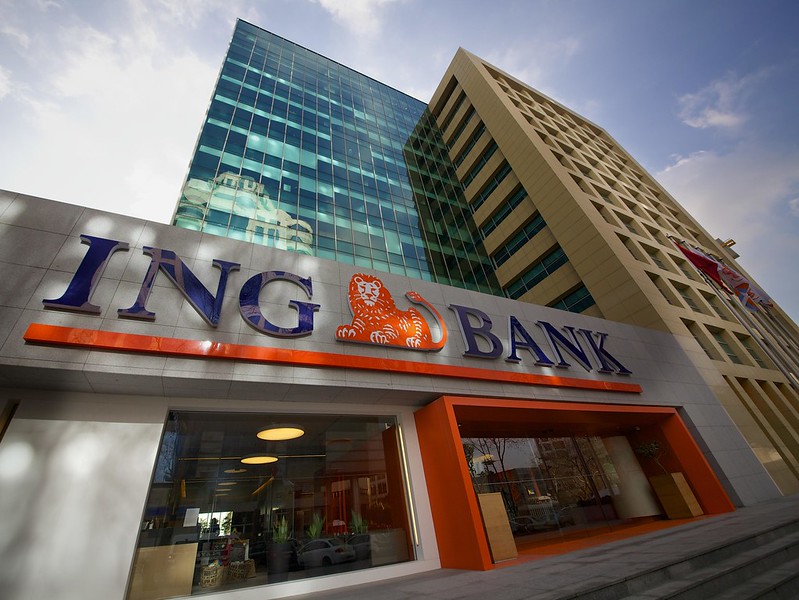ING, the Netherlands' largest financier of oil and gas, has announced stricter policies on lending to fossil fuel companies as part of its efforts to accelerate the transition to a low-carbon economy.
The Dutch lender unveiled plans to cease all new general financing to pure-play upstream oil and gas companies that continue to develop new fields, effective immediately. Additionally, from 2025 onwards, ING will no longer provide project finance for new liquefied natural gas (LNG) export terminals.
Steven van Rijswijk, chief executive officer of ING, told Reuters: "If you're a pure play upstream oil and gas company, developing fields and extracting oil and gas, and if you continue to open new fields, we will stop financing you altogether."
These policy changes could impact around 25 of ING's clients, representing approximately €1 billion in lending. While this figure is a small fraction of the bank's overall €656 billion lending book, it accounts for a significant portion of the carbon emissions linked to its financing activities.
The bank's latest move builds upon its 2023 commitment to phase out upstream oil and gas financing by 2040. It comes as European banks take the lead in policies addressing climate change, while some major Wall Street lenders face accusations of weakening their climate commitments.
ING's annual Climate Progress Update 2024 outlines the bank's approach to engaging with clients on their transition towards net-zero emissions. The lender has developed an online tool called ESG.X to assess the sustainability disclosures of about 2,000 of its largest wholesale banking clients.
Van Rijswijk expressed pride in the bank's evolving climate approach, stating: "The urgency of climate change is becoming more evident all the time and ING wants to play a leading role in accelerating the global transition to a low-carbon economy. We all have a part to play, and we can all make the difference for present and future generations if we work together towards the same goals."
From 2026, after two years of disclosure assessments and strategic engagement, ING plans to apply stricter conditions or potentially cease financing altogether for clients unable or unwilling to progress on their climate commitments.
The bank has also expanded its "Terra" approach, which aims to steer carbon-intensive sectors in its loan portfolio towards global climate goals, to include the aluminium and dairy sectors. This brings the total number of sectors under scrutiny to twelve.
As of 2023, ING's outstanding loans to the oil and gas sector amounted to €17.1 billion. The bank's continued financing of fossil fuels has drawn criticism from non-governmental organisations, despite its efforts to tighten lending policies.
Latest News
-
Gemini to cut quarter of workforce and exit UK, EU and Australia as crypto slump forces retrenchment
-
Bank ABC’s mobile-only ila bank migrates to core banking platform
-
Visa launches platform to accelerate small business growth in US
-
NatWest to expand Accelerator programme to 50,000 members in 2026
-
BBVA joins European stablecoin coalition
-
eToro partners with Amundi to launch equity portfolio with exposure to ‘megatrends’
Creating value together: Strategic partnerships in the age of GCCs
As Global Capability Centres reshape the financial services landscape, one question stands out: how do leading banks balance in-house innovation with strategic partnerships to drive real transformation?
Data trust in the AI era: Building customer confidence through responsible banking
In the second episode of FStech’s three-part video podcast series sponsored by HCLTech, Sudip Lahiri, Executive Vice President & Head of Financial Services for Europe & UKI at HCLTech examines the critical relationship between data trust, transparency, and responsible AI implementation in financial services.
Banking's GenAI evolution: Beyond the hype, building the future
In the first episode of a three-part video podcast series sponsored by HCLTech, Sudip Lahiri, Executive Vice President & Head of Financial Services for Europe & UKI at HCLTech explores how financial institutions can navigate the transformative potential of Generative AI while building lasting foundations for innovation.
Beyond compliance: Building unshakeable operational resilience in financial services
In today's rapidly evolving financial landscape, operational resilience has become a critical focus for institutions worldwide. As regulatory requirements grow more complex and cyber threats, particularly ransomware, become increasingly sophisticated, financial services providers must adapt and strengthen their defences. The intersection of compliance, technology, and security presents both challenges and opportunities.
© 2019 Perspective Publishing Privacy & Cookies













Recent Stories